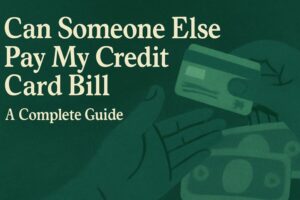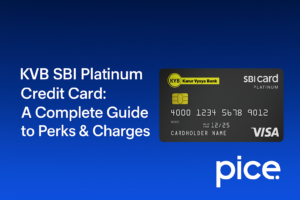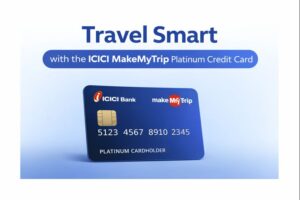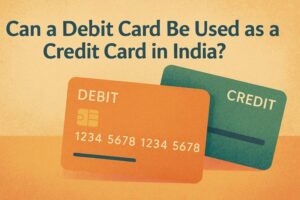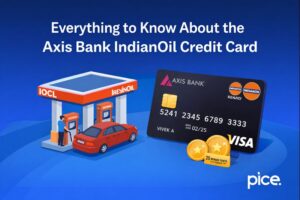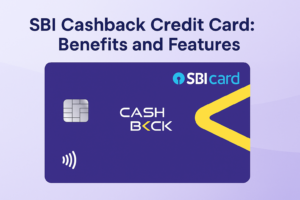Discover the Different Types of Payment Cards Available in 2025
- 11 Nov 25
- 7 mins
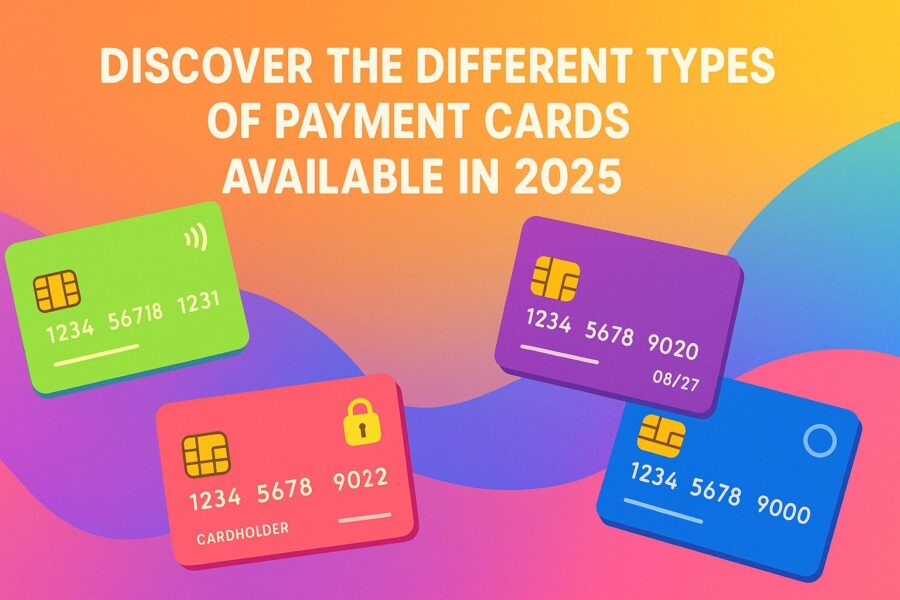
Discover the Different Types of Payment Cards Available in 2025
Key Takeaways
- India offers five different types of payment cards, namely, debit, credit, prepaid, virtual, and gift cards, for varied financial needs.
- Debit cards enable spending directly from your bank account without incurring debt.
- Credit cards allow borrowing within a limit and help in building credit history when used responsibly.
- Prepaid and gift cards offer controlled spending since they are preloaded with a fixed amount.
- Virtual or electronic cards provide secure, contactless transactions through digital wallets or smart devices.
In India, payment cards come in 5 distinct types, each designed for different financial needs. While debit and credit cards are the most commonly used, there are also prepaid cards, virtual cards and gift cards.
If you want to know more about these cards, you are at the right place! This blog will go through a detailed guide on different types of payment cards issued in India, as of 2025.
Different Types of Payment Cards
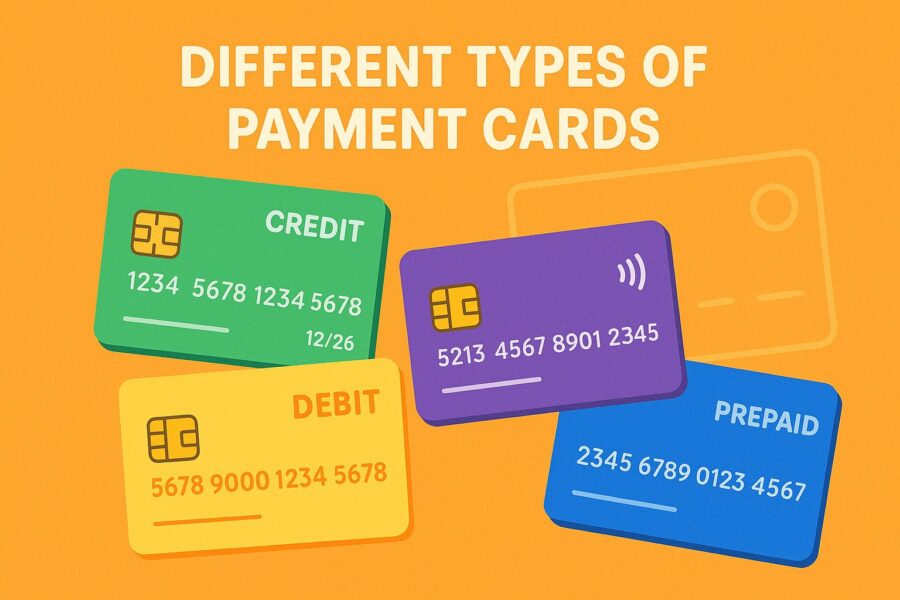
Debit Card
Banks issue debit cards to savings account holders for direct payment from the account. Besides transactions, you can use your debit cards as ATM cards for cash withdrawals.
Debit cards are usually linked to credit networks like VISA or MasterCard. This allows its usage for international transactions. However, you must note that you need to enable the international transaction facility using the net banking portal of your concerned bank.
Pros of Debit Card
- You can transact with the money you have in your savings account.
- You can avoid debt.
- Debit cards are accepted at almost all places.
- You do not have to pay interest on your money to use debit cards.
Cons of a Debit Card
- Debit cards do not contribute to building your credit history.
- If you spend all the money in your savings accounts, you cannot use your debit card further for transactions.
- Reward points and benefits are fewer compared to credit cards.
- Debit cards lack protection against fraudulent activities.
Credit Card
Banks and Non-banking Financial Corporations (NBFCs) issue credit cards to their customers with a predetermined credit limit. The issuer determines the credit limit based on credit score, income, age, residential status and repayment capacity of an individual.
Besides a credit limit, credit cards come with a cash limit for withdrawals. However, such withdrawals are chargeable. You can use credit cards for online and PoS (Point of Sale) transactions for goods and services.
Further, after using a credit card for transactions, you need to pay the bill amount within the due date to avoid the levy of interest. Non-payment or paying the minimum amount attracts interest and affects your creditworthiness.
Pros of Credit Cards
- Several credit cards offer rewards, travel benefits and cashback. For instance, Axis Bank offers membership coupons worth ₹1,000 every anniversary year.
- You can improve your credit score if you use your credit cards responsibly.
- Credit cards come with potential fraud protection policies.
- You can use your credit card even if you have a lower cash flow and a zero balance in your savings account.
Cons of Credit Cards
- You might have to pay additional interest (up to 3.75% per month in case of Axis Bank credit cards) if you do not pay your credit card bill on time.
- Overspending with your credit card might result in debt.
- Credit cards often attract late payment fees, foreign transaction fees and annual fees.
- Late payment of your credit card bill might affect your credit score.
💡Pay your credit card bills in an easy and secure way with the PICE App.
Prepaid Card
You can get a prepaid card from a bank or a non-bank on advance payment. The provider loads the money into the prepaid card, which you can use for transactions.
Prepaid cards come with a PIN and expiry date, similar to debit and credit cards, which you can use at PoS terminals or online. As these cards have pre-stored currencies, you can seamlessly avoid overpayment while using these cards.
Pros of Prepaid Car
- You can get prepaid cards without a credit history.
- As a cardholder, you can reload the card when you spend the money stored.
- You can avoid the risk of spending beyond your card balance.
- As a cardholder, you can use these cards even without a bank account.
- These cards are accepted at all places where credit and debit cards are accepted.
Cons of Prepaid Card
- Usually prepaid cards attract fees for transactions, monthly fees, reloading fees and withdrawal fees.
- Using prepaid cards does not contribute to your credit score.
- These cards lack protection against loss or theft compared to debit or credit cards.
Electronic Cards
Electronic cards, also known as virtual cards, are similar to debit cards. However, these cards are stored in phones or smart watches in electronic form or as digital wallets for contactless use. These cards come with a card number, card expiration date and card verification value (CVV code), similar to debit cards.
As these are virtual cards, you need access to the internet to use such cards. Banks issue these cards for various purposes such as Merchant Discount Rate (MDR), security and safety and Additional Factor of Authentication (AFA).
Pros of Electronic Card
- As information about virtual cards is kept private, it offers greater security, reducing the risk of fraud.
- You do not need to carry additional cards for transactions.
- These cards are easy to use if you have internet access.
Cons of an Electronic Card
- Certain retail outlets might have restrictions on using virtual cards.
- You cannot use these cards in areas with no internet accessibility.
Gift Cards
Gift cards are pre-loaded cards, an alternative to conventional gifts. The validity period of a gift card is usually 1 to 2 years.
Once the cardholder uses the money on a gift card, it cannot be reloaded. It comes with a card number and expiry date, within which the cardholder needs to use the money to avoid losing the gift. A gift card can be brand-specific or merchant-specific, allowing redemption options to cardholders.
Pros of Gift Card
- Recipients can choose their gift and purchase using their gift card.
- Gift cards are easy to purchase and present.
- These cards entail less risk compared to cash as a gift.
- Several retailers offer gift cards, making it easy to choose.
- You do not need a bank account to use gift cards.
Cons of a Gift Card
- Certain gift cards might be restricted to use at stores or online.
- If you do not use the gift card within the expiry date, you will lose the gift.
- You cannot exchange a gift card for cash.
Conclusion
Different types of payment cards have variable purposes. If you want to build your credit history, you can use a credit card for transactions. However, ensure you pay your credit card bills within the due date to avoid paying additional interest and late fees.
If you want to use the money that you already have, you can use a debit card or reload a prepaid card. The latter helps you control your spending while you can avoid overspending. If you have a gift card, make sure to use it within the expiry date to avoid losing the money.
 By
By 





